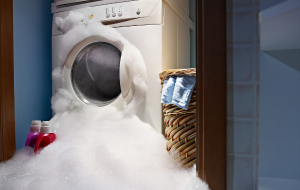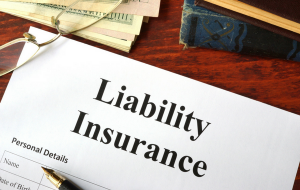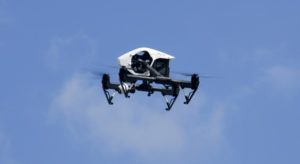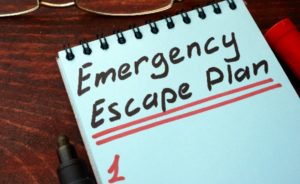 Did you know that washing machines are one of the main sources of water damage to homes? Others that top the list include hot water heaters and dishwashers. Fortunately, there are a few easy and inexpensive steps you can take help to prevent these types of losses:
Did you know that washing machines are one of the main sources of water damage to homes? Others that top the list include hot water heaters and dishwashers. Fortunately, there are a few easy and inexpensive steps you can take help to prevent these types of losses:
- Check for leaks: Thoroughly check the area around appliances for any signs of leaking every four months.
- Check supply hoses: Check the supply hoses regularly to ensure a tight connection, and no breaks or tears. It’s a good idea to replace supply hoses for washing machines and dishwashers every five years even if there are no signs of wear. Sometimes, wear only shows on the inside. Reinforced, steel braided hoses are recommended.
- Read the manual: Always refer to your manufacturer’s guidelines for types of soap and load recommendations for the washing machine and dishwasher. Most new washing machines require HE detergents.
- Flush your water heater: It is recommended to flush your water heater once per year to ensure you have fresh water and to remove sediment.
- Don’t leave running appliances unattended. Try to only operate washing machines and dishwashers when someone is at home.
- Replace hot water heater as needed. It’s recommended to replace the hot water heater when it is nearing the end of its life expectancy, even if there aren’t any problems. As the water heater ages, the risk of a slow leak or sudden burst increases.
- Leak detection systems are a great tool to monitor your appliances, and even automatically shut off water in the event of a detected leak. While there are expenses with a leak detection system, it might just score you a discount on your homeowners policy! Leak detection systems can be added to individual appliances or an entire house.
Of course, not all losses can be prevented, but following these tips should lower your chances of a loss. In the event of a water leak, it is important to know where your water shut-off valve is located so that water can quickly be turned off to minimize damage.

 After the holiday season, many like to start the New Year by organizing new gifts and purchases and cleaning out the closets. As each year goes by and your needs continue to change, it’s easy to forget to update your insurance policy in the process. There is no better time than now to make sure both your new, as well as old belongings, are insured properly on your homeowners policy.
After the holiday season, many like to start the New Year by organizing new gifts and purchases and cleaning out the closets. As each year goes by and your needs continue to change, it’s easy to forget to update your insurance policy in the process. There is no better time than now to make sure both your new, as well as old belongings, are insured properly on your homeowners policy. When discussing and rating homeowner insurance policies, personal liability coverage is often an afterthought. Insurance companies and insurance agents don’t always take the time to explain what it is and what it covers. Don’t fall into the trap of thinking personal liability coverage isn’t important. It most certainly is!
When discussing and rating homeowner insurance policies, personal liability coverage is often an afterthought. Insurance companies and insurance agents don’t always take the time to explain what it is and what it covers. Don’t fall into the trap of thinking personal liability coverage isn’t important. It most certainly is! New Year, new outlook. Many of us have been busy writing down goals for 2018 and looking forward to starting off the New Year with a fresh perspective. I’ve always loved hearing the variety of resolutions from my family and friends and the different ideas they bring to the New Year. Of course, you hear the most common resolutions of “watch what I eat,” “go to the gym more,” “save money,” etc. But this year, I’ve heard a new resolution; “be more prepared.” This got me thinking: am I prepared for the unexpected and how can I help others be more prepared? In the insurance world specifically, there are many unexpected situations that can take place, but there are also many ways to be more prepared
New Year, new outlook. Many of us have been busy writing down goals for 2018 and looking forward to starting off the New Year with a fresh perspective. I’ve always loved hearing the variety of resolutions from my family and friends and the different ideas they bring to the New Year. Of course, you hear the most common resolutions of “watch what I eat,” “go to the gym more,” “save money,” etc. But this year, I’ve heard a new resolution; “be more prepared.” This got me thinking: am I prepared for the unexpected and how can I help others be more prepared? In the insurance world specifically, there are many unexpected situations that can take place, but there are also many ways to be more prepared Having worked in the insurance industry for ten years, I have received many calls, e-mails, and texts from friends and family regarding their insurance needs. I am more than happy to assist where I can, but my conversations with them seem to always end with one question, “Do you have an independent agent?” Like many not in the insurance industry, insurance can be an unknown. It’s something that you know you need to have, but don’t fully understand how it works. It’s an intangible product that you pay for every year and hope to never use. Here are three reasons I believe working with an independent agent is the best option for purchasing insurance.
Having worked in the insurance industry for ten years, I have received many calls, e-mails, and texts from friends and family regarding their insurance needs. I am more than happy to assist where I can, but my conversations with them seem to always end with one question, “Do you have an independent agent?” Like many not in the insurance industry, insurance can be an unknown. It’s something that you know you need to have, but don’t fully understand how it works. It’s an intangible product that you pay for every year and hope to never use. Here are three reasons I believe working with an independent agent is the best option for purchasing insurance.  Unmanned Autonomous Vehicles (UAVs) or Remotely Piloted Aerial Systems (RPAS), commonly known and referred to as drones, are aircraft which can be operated without an onboard pilot. Originally developed for military use in situations deemed too dangerous for manned aircraft, their use has since expanded to scientific, recreational, agricultural, commercial, and insurance industries. In the insurance industry, they are highly versatile. They can perform such tasks as property surveillance, 3-D mapping, and roof inspections. As the number of drones increase and their capabilities expand, it is inevitable that they will soon become common sights in the sky. As with any new technology, drones have their own unique risks and hazards. If you have purchased a drone, or are looking to purchase one for your personal or commercial use, the following tips, guidelines, and general information will help you comply with existing regulations, safely operate, and properly insure your drone.
Unmanned Autonomous Vehicles (UAVs) or Remotely Piloted Aerial Systems (RPAS), commonly known and referred to as drones, are aircraft which can be operated without an onboard pilot. Originally developed for military use in situations deemed too dangerous for manned aircraft, their use has since expanded to scientific, recreational, agricultural, commercial, and insurance industries. In the insurance industry, they are highly versatile. They can perform such tasks as property surveillance, 3-D mapping, and roof inspections. As the number of drones increase and their capabilities expand, it is inevitable that they will soon become common sights in the sky. As with any new technology, drones have their own unique risks and hazards. If you have purchased a drone, or are looking to purchase one for your personal or commercial use, the following tips, guidelines, and general information will help you comply with existing regulations, safely operate, and properly insure your drone.  If you drive a vehicle, you are required by law to have insurance. But why do we need it?
If you drive a vehicle, you are required by law to have insurance. But why do we need it? According to the
According to the  This phrase and its variations can strike fear into a person’s heart in ways that few others can. Is someone reading your e-mails? Do they have your credit card information? Do you use the same password on any other sites, rendering them vulnerable?
This phrase and its variations can strike fear into a person’s heart in ways that few others can. Is someone reading your e-mails? Do they have your credit card information? Do you use the same password on any other sites, rendering them vulnerable?